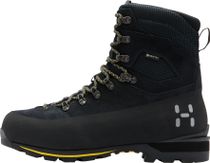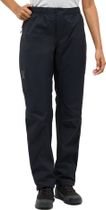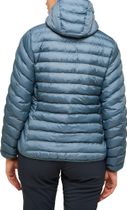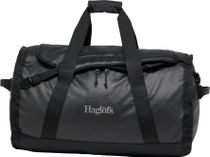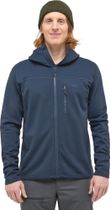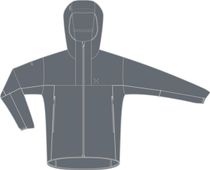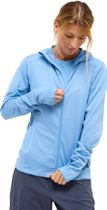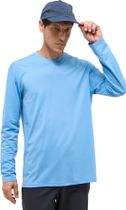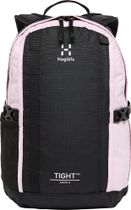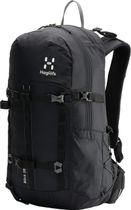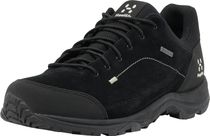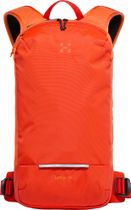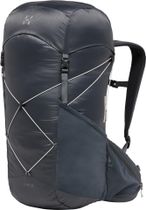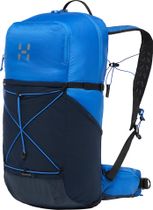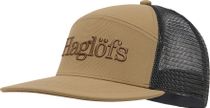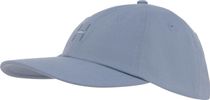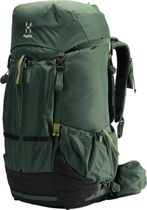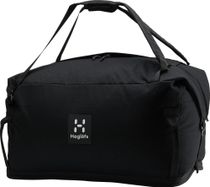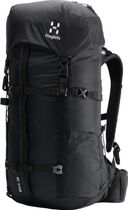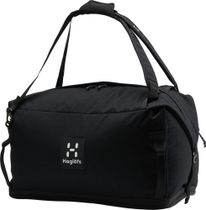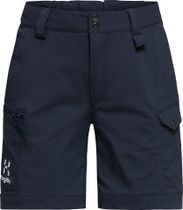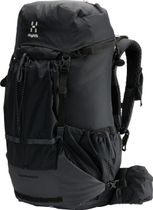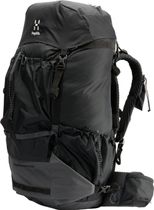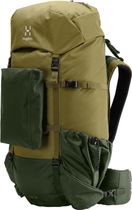
Haglöfs
Read more about HaglöfsHaglöfs
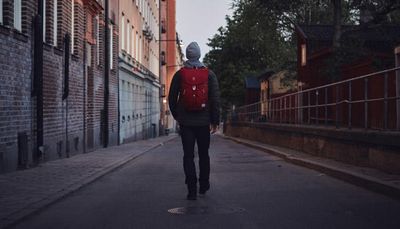
Swedish outdoor tradition for over 100 years
Wiktor Haglöf was not exactly an outdoor enthusiast. Being outdoors meant one thing above all else to the son of a Swedish forester at the beginning of the 20th century: long, arduous walks through the forest in a harsh climate. Therefore, his main motto was to defy the elements and make his daily efforts easier.
So in 1914 he started to make backpacks in a small cottage in Torsång in Dalarna County and sold them to the workers in the region. When the demand for his functional backpacks increased, he first moved to a larger workshop with his first employees in 1919 and finally built a factory in 1934. With around 20 employees, Haglöf had more time for innovation, and so he continued to develop new backpacks and accessories, such as a backpack that could be converted into a child carrier in one go.
When Haglöf's sons Rolf and Hans took over the business in 1955, the backpacks were already being sold throughout Sweden. During the next two decades the assortment was expanded to include other outdoor products.
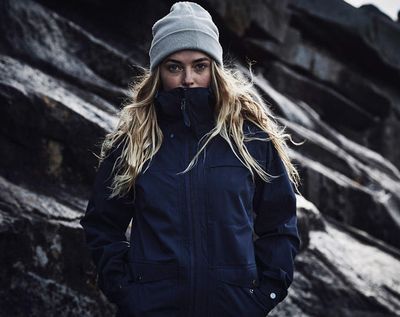
From backpack manufacturer to innovative outdoor equipment supplier
At the end of the 80's, in addition to some sleeping bags and tents, a number of shoes were also part of the product range. But the brand stagnated. A new product developer brought a breath of fresh air to the company in 1989. Modern sleeping bags were tested and a first clothing line was designed. Over the next few years, a lot of testing was done according to the motto "trial and error" and a new guiding principle was created. The claim was and is to develop products with high functionality, solid design and a good price-performance ratio.
In 1993 the company ushered in a new era with the introduction of the tight backpack and Haglöfs was able to establish itself as a modern outdoor brand, also internationally. The model became a bestseller and is still very popular today. Over 1 million tight backpacks have been sold. With the use of Gore-Tex, the brand's clothing line also developed strongly from 1996 onwards.
In the 2000s, innovations were made in all areas. With new carrying systems, materials and constructions, the brand developed into an important player in the technical outdoor sector. New product concepts such as L.I.M. were also introduced to the market. According to the motto "Less is more", L.I.M. articles score points with their light weight and simple design. Every detail serves a purpose.
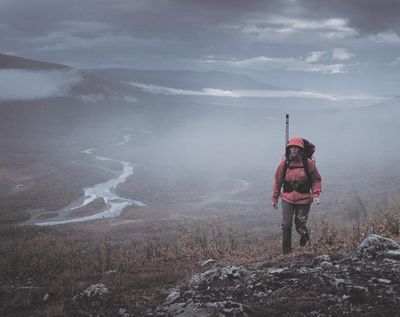
Commitment to sustainability
The issue of sustainability has preoccupied Haglöfs since the mid-2000s. In order to treat the environment more responsibly, the company has been a bluesign® system partner since 2008. The majority of the clothing models are already certified as bluesign® products, while other products are also increasingly being manufactured according to the strict environmental standard. In addition, Haglöfs uses its own label called "Sustainable Choice" to identify products that have been produced in a particularly sustainable way.
What does this mean in detail? For example, Haglöfs products are made exclusively from organic cotton. The wool used is completely mulesing-free and comes from IWTO (International Wool Textile Organisation) certified wool suppliers. The down must also comply 100% with the Responsible Down Standard. In order to keep harmful chemicals in production to a minimum, the products are also to be manufactured without fluorocarbons in the future. Since the summer of 2018, 88% of the collections are already PFC-free, and by 2020 100% should be achieved.
Instead, new, innovative materials such as PROOFTM are being developed, which ensure waterproof and breathable products completely without fluorocarbons. A sole made of sugar instead of crude oil is also already in use. As a member of the Fair Wear Foundation, Haglöfs is also committed to fair working conditions in its production and supply chain.
(Photos: Haglöfs)

